LISTEN TO THE PODCAST HERE:
FARGO — When pollsters ask Americans to name their favorite candy (so much more fun than naming your favorite politician), the most common answers are usually Reese's Peanut Butter Cups and M&M's. It's pretty clear why those two candies have been around so long.
While some candy, like Reese's or M&M's, have endured through the years because of their deliciousness, it seems like others have survived in spite of it.
ADVERTISEMENT
Often topping polls about America's least favorite candy, here are eight candies that sometimes inspire comments like, "Ewwww, I hate those," but apparently are liked by enough people to survive a century or more either in retail stores or specialty online outlets.
Should these retro treats go by the way of lead paint and smoking on airplanes, or do they belong in our future as much as our past?
Vote in the poll at the bottom of this story.
Black Jack gum
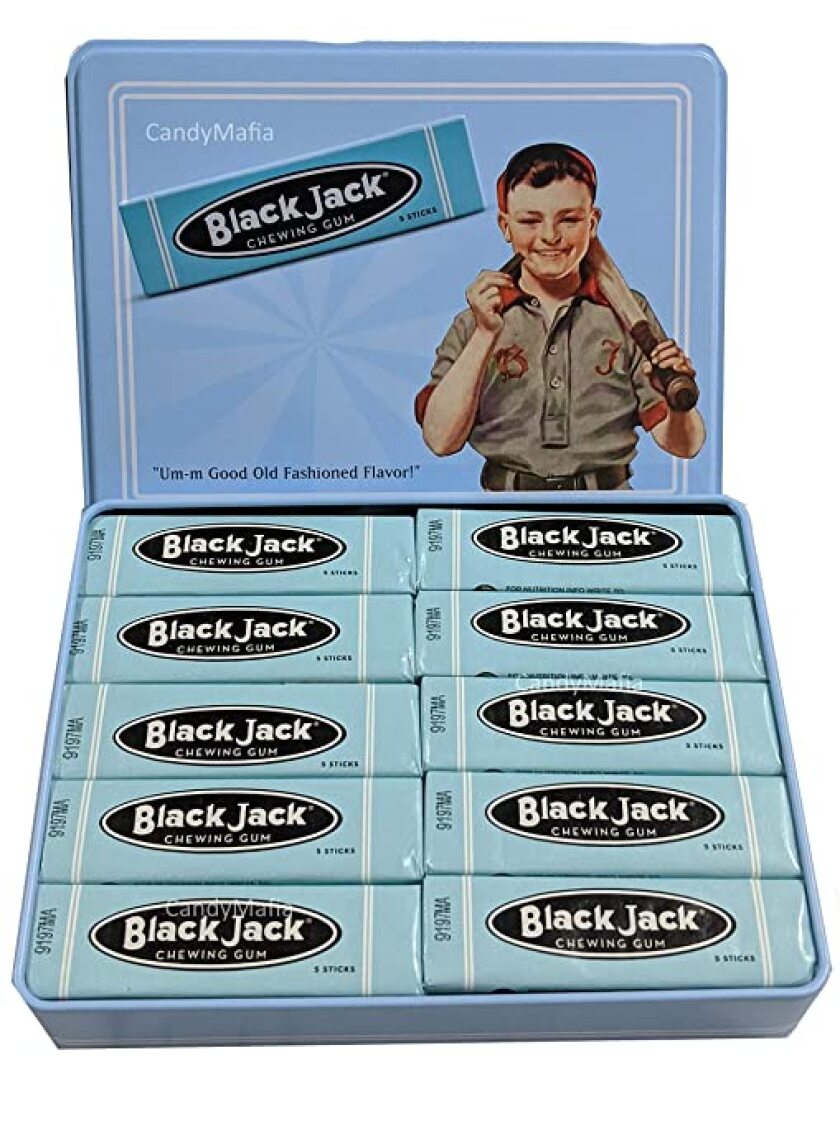
It's pretty simple: If you like black licorice, you probably liked Black Jack gum. It goes way back to 1871, when exiled Mexican President Antonia Lopez de Santa Anna brought Mexican chicle to his new home in New Jersey with the hopes of selling it. His American partner, Thomas Adams, wanted to use it as a rubber substitute, but it didn't work. However, Adams noticed Santa Anna liked to chew on the chicle, and Black Jack gum was born. It was widely sold for nearly 100 years before sales dropped in the 1970s. Those who love it still can order it online.
Circus peanuts
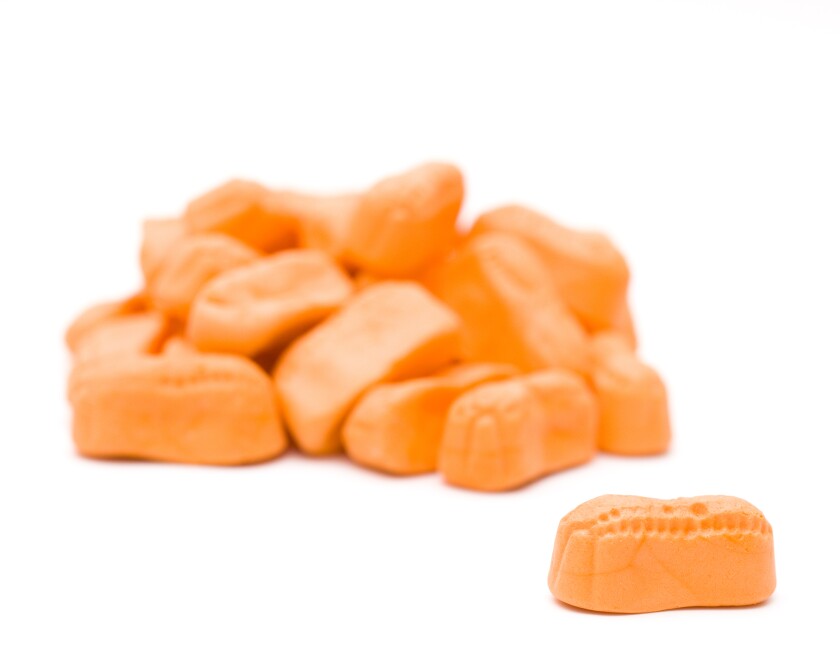
Steve Almond, a self-described "candy addict" and writer of "Candyfreak," calls circus peanuts "a mixture of fascination and disgust." First invented in the 1930s, they're orange, but taste like banana. They're chewier than a marshmallow and those who do like them debate whether they're better fresh from the bag or left to get stale. Others say it doesn't matter — they just belong in the garbage.
Wax lips/wax bottles
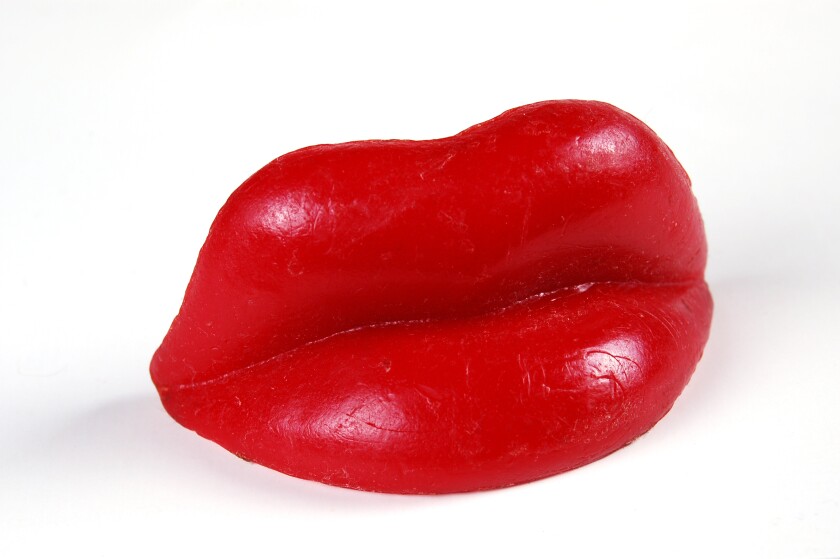
According to CandyFavorites.com, wax candies like the lips (pictured above) or the little wax bottles containing a tablespoon or so of sugary liquid are the direct result of the 1859 birth of the oil industry in America. A byproduct of kerosene distillation is paraffin, which some ingenious sweet-eating capitalists soon figured out could be used to make candy treats. By the 1990s, the wax candies were harder to find in stores.
Candy corn
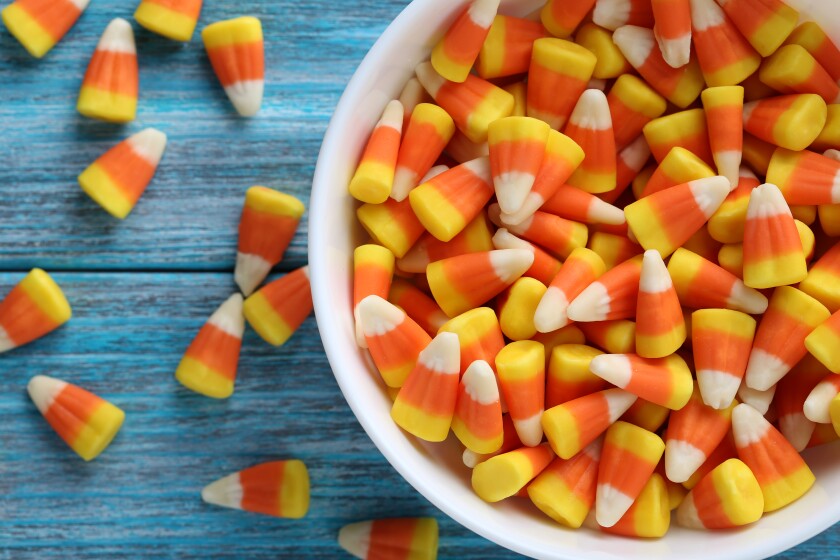
They're a staple of Halloween, yet they continue to top lists of the most hated candies in America. Candy corn was invented in the 1880s when America was an agrarian society. While it used to just be produced during Halloween, it is now widely available all year, much to the disdain of some.
ADVERTISEMENT
Peeps

They invade store shelves every spring with their neon colors and squishy bodies. One of the younger candies on the list, Peeps were born in 1953. While they adorn Easter baskets all over the world, some people have tried to find a better purpose for them. Peeps pie? Peeps pizza? Others say there is absolutely no purpose for these treats.
Bit-O-Honey
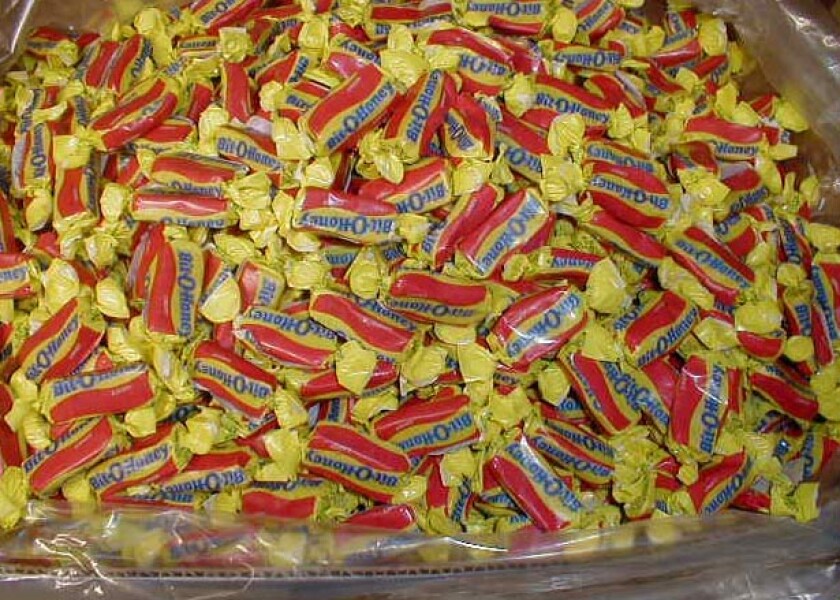
Bit-O-Honey, a honey-flavored taffy, was invented in 1924. They're still available today and because they don't melt (similar to Tootsie Rolls), they're often handed out at parades. However, those who dislike them will tell you it's OK if they get run over by a float.
Necco Wafers

A funny thing happened when the company that made Necco Wafers (kind of like Sweethearts or Smarties) stopped making them in 2018. According to The Wall Street Journal, while some people claimed they tasted like "drywall," when they found out they were going away, they started hoarding them. They didn't need to: the company started manufacturing them again in 2020.
Peanut Butter Kisses

While Reese's Peanut Butter Cups often top the favorite candy list, its cousin, the Peanut Butter Kiss, is usually a bottom-dweller. A peanut butter taffy combined with molasses and a peanut butter center, it's often the last candy left at the bottom of the Halloween basket. In fact, High Point, N.C., jokingly banned its residents from handing them out at Halloween, stating, "No one likes them."









